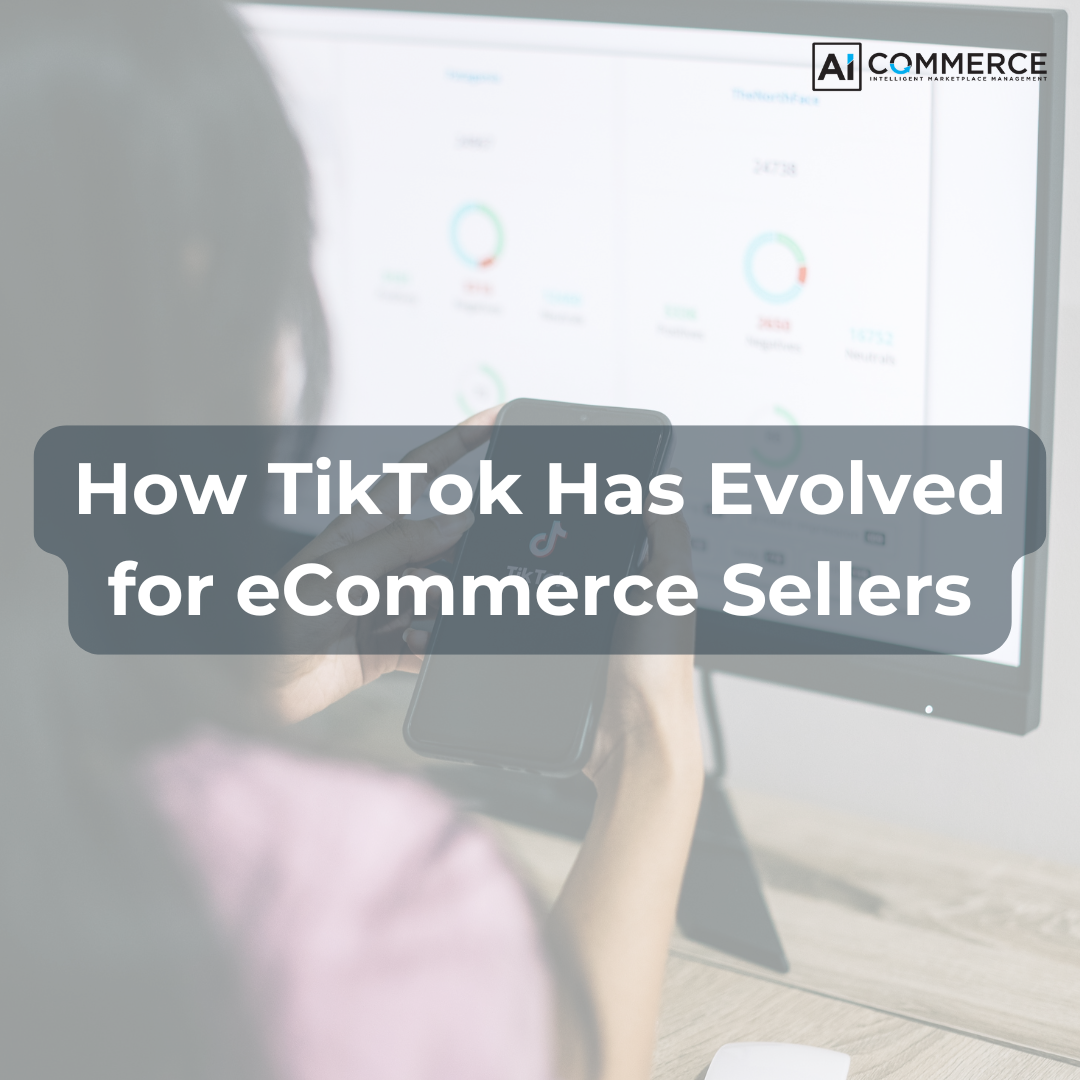How eCommerce Brands Can Develop and Leverage Influencer Relationships
In today’s digital landscape, influencer marketing has evolved from a buzzword to a strategic pillar for eCommerce brands. Whether you're a new brand trying to enter the market or an established company looking to extend your reach, building and leveraging relationships with influencers can be a game-changer.
However, successfully developing and leveraging influencer partnerships requires more than sending free products to social media personalities. It’s about building authentic, mutually beneficial relationships.
Why Influencer Marketing is Crucial for eCommerce Brands
- Targeted Reach: Influencers allow eCommerce brands to connect with specific target audiences that are hard to reach through traditional advertising. Influencers have established trust and rapport with their followers, and they can provide your brand with instant access to those audiences.
- Authenticity and Trust: Unlike traditional ads, influencer content feels more organic, authentic, and relatable. Influencers who genuinely believe in your product can provide honest recommendations that resonate with their audience. This authentic endorsement creates trust in your brand, making consumers more likely to purchase your products.
- Improved Content Creation: Influencers are content creators by profession. They know how to produce visually appealing, engaging content that resonates with their audience. By collaborating with influencers, brands benefit from high-quality content without the need for in-house production teams.
- Boost in Sales: Influencer collaborations can generate immediate sales boosts, especially when promotions are involved. Limited-time discount codes or exclusive offers shared by influencers can create urgency, motivating followers to make purchases on the spot.
- Increased Brand Awareness: Influencers expose your brand to new audiences who might not have discovered you otherwise. Even if these audiences don't immediately convert into customers, the awareness they generate can lead to future purchases.
- SEO Benefits: Influencer-generated content can drive traffic to your website, leading to improved SEO rankings. The backlinks and mentions from influencers also help build your brand’s online presence and authority.
Developing Influencer Relationships: A Step-by-Step Guide
- Identify the Right Influencers
- Define Your Audience: Before you reach out to influencers, you must understand your target audience. Who are your ideal customers? What are their interests, pain points, and purchasing behavior? Understanding these factors will help you select influencers who cater to that demographic.
- Look for Alignment in Values and Content: Not every influencer with a large following is the right fit. It's important to align with influencers whose values and content style complement your brand. Research their previous brand partnerships, content tone, and audience engagement to ensure compatibility.
- Engagement Over Follower Count: It's easy to be drawn to influencers with millions of followers, but the key metric here is engagement. A smaller influencer with high engagement can be more valuable than a large one with passive followers. Look for influencers whose followers actively comment, like, and share their posts.
- Use Influencer Marketing Platforms: Tools like AspireIQ, Upfluence, and Heepsy can help eCommerce brands find influencers in specific niches. These platforms allow brands to filter influencers by niche, follower count, engagement rate, and more.
- Research and Vet Potential Influencers
- Analyze Audience Demographics: Some tools allow you to analyze the audience demographics of an influencer, including age, gender, location, and interests. This helps you ensure that the influencer’s audience aligns with your target market.
- Examine Their Engagement Rates: An influencer with an impressive following but low engagement might have an audience that’s not genuinely interested in their content or products. As a general rule, engagement rates should be at least 2-3%.
- Check for Authenticity: Unfortunately, some influencers buy fake followers. You can check the authenticity of an influencer’s followers through tools like Social Blade or HypeAuditor. These platforms provide insights into the growth pattern of an influencer's followers and can flag suspicious activity.
- Evaluate Their Content Quality: Assess the quality and consistency of their content. Are their visuals professional and engaging? Do they tell authentic stories, or do they seem like they’re doing product placements for any brand that comes their way?
- Reach Out with a Personalized Pitch
- Be Transparent About Your Goals: Explain what you’re looking for in the collaboration. Are you interested in brand awareness, engagement, or sales? Be clear so both parties have aligned expectations from the outset.
- Offer Value: The best influencer relationships are mutually beneficial. If you’re a smaller brand, don’t just offer free products—offer long-term partnership opportunities, revenue sharing, or exclusive deals.
- Build a Genuine Relationship
- Engage With Their Content: Before pitching, take some time to genuinely engage with the influencer’s content. Like, comment, and share their posts to show that you’re invested in their work.
- Offer Long-Term Partnerships: Instead of focusing on one-off collaborations, offer the opportunity for a long-term partnership. This not only benefits the influencer but also ensures continuous exposure for your brand.
- Invite Influencers to Be Part of the Creative Process: Let influencers have creative control over how they promote your products. Their audience knows their style and authenticity, so allowing them to tailor the content to suit their voice will resonate better with their followers.
- Craft an Effective Collaboration Agreement
- Deliverables: The type and number of posts, videos, or stories the influencer is required to produce.
- Deadlines: When content needs to be completed and posted.
- Compensation: Whether you're offering monetary compensation, free products, or revenue sharing. Ensure that all financial terms are clearly spelled out.
- Rights to Content: Clarify whether your brand can repurpose the influencer’s content on your website, social media platforms, or marketing materials.
- Exclusivity Clauses: If needed, include exclusivity clauses to prevent influencers from promoting your competitors during your partnership.
- Measure Campaign Success
- Engagement: Likes, comments, shares, and saves are indicators of how well the influencer's content resonated with their audience.
- Traffic: Use Google Analytics or trackable links to monitor how much traffic the influencer is driving to your website or product pages.
- Sales and Conversions: Provide the influencer with a unique discount code or affiliate link to track how many sales were directly influenced by their promotion.
- Follower Growth: Track whether your brand gained new followers on social media after the influencer partnership.
Leveraging Influencer Relationships for Long-Term Success
Once you’ve developed successful influencer relationships, consider creating a brand ambassador program. Ambassadors are influencers who regularly promote your products and embody your brand’s values. Ambassador programs foster deeper loyalty and provide consistent content for your brand.
Create a sense of exclusivity by offering influencers special perks like early product releases, personalized packages, and access to private events. Ambassadors are more likely to produce user-generated content (UGC) because of their consistent relationship with your brand. UGC can be repurposed across your website and social media channels, adding social proof to your brand.
Social proof is a powerful motivator for consumers. When influencers share testimonials or showcase their experience with your product, it strengthens the credibility of your brand. Repurpose these reviews and content as testimonials on your website, email marketing, and advertising campaigns.
Influencer-generated content can also enhance your paid advertising efforts. Repurposing influencer posts for social media ads gives your brand a more authentic, human touch. It adds credibility to your ads, as customers trust endorsements from real people over brand-driven content.
Influencer marketing is a powerful tool for eCommerce brands, but its success hinges on authenticity, alignment, and relationship building. By carefully identifying influencers that align with your brand values, building long-term relationships, and leveraging influencer content in multiple marketing channels, your brand can unlock significant growth opportunities.
As eCommerce continues to evolve, influencer marketing will remain an essential strategy for engaging audiences, boosting brand awareness, and driving sales. By adopting the strategies outlined in this guide, you can develop and leverage meaningful influencer relationships that will propel your eCommerce brand toward lasting success.
More About aiCommerce
aiCommerce is a global digital marketing agency with a focus on retail and eCommerce marketplaces. aiCommerce can help your brand grow across eCommerce channels to gain brand awareness, visibility, and increase sales, all backed by our 90-day guarantee. Now is the perfect time to utilize our eCommerce experts to help grow your business. Click the button below to learn more!




